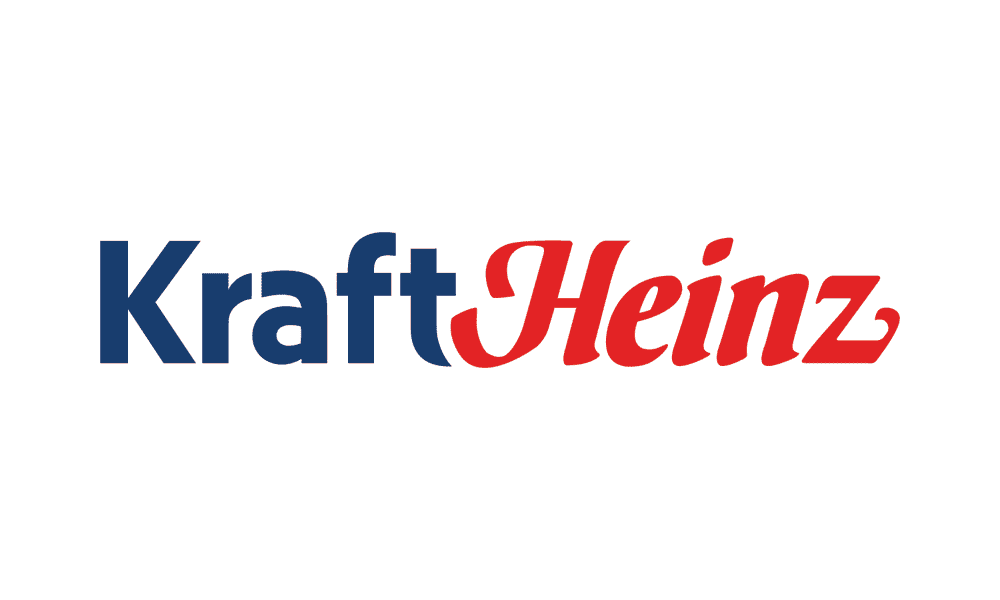2022 Recap: Regenerative Ag, Upcycling & Innovation Mark Year In Sustainable Food
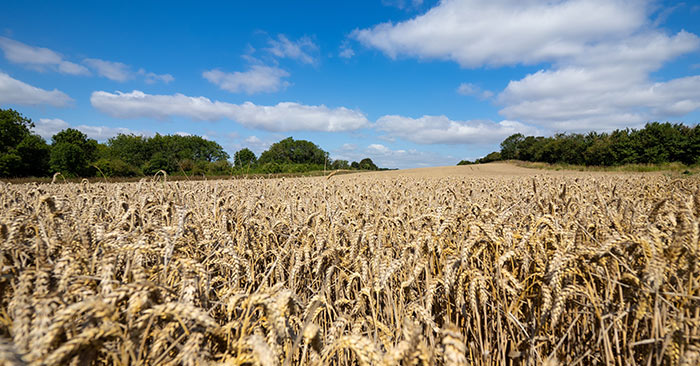
High inflation might have increased food prices but sustainable food options maintained a hold on consumer appeal in 2022. New certifications brought specificity to sustainable label claims and calls for the industry to meet lofty ESG goals highlighted the year. Additionally, food makers focused innovation on products made with upcycled or regenerative agriculture ingredients while multinationals expanded the offerings for vegan and alternative dairy items.
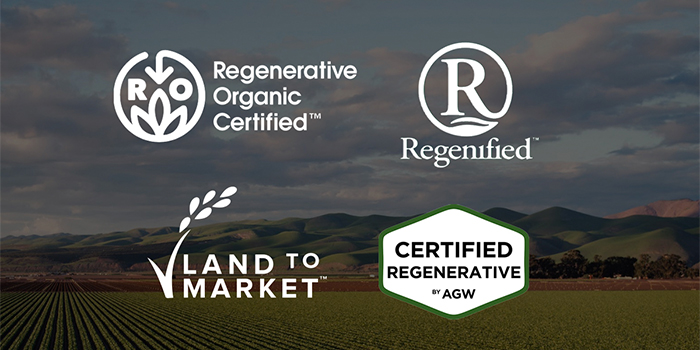
Consumers Value New Sustainability Certifications
In 2022, CPG companies saw value in applying for and prominently labeling products with sustainability certifications. New third-party certifications are joining a list that has been dominated by the likes of Fair Trade, USDA Organic and Non-GMO Project Verified for years. Many within this new wave are seeking to verify a food product’s pedigree of being made from upcycled, carbon neutral (or carbon negative) or regeneratively grown ingredients continue to gain momentum among consumers.
According to a survey by ingredient supplier Cargill, 63% of consumers look for an indication of sustainable sourcing on-pack. About 55% of consumers surveyed by Cargill said they are more likely to buy a food item if it includes a sustainability claim on-pack, up 4% since 2019.
As conscious consumers are looking deeper at brands’ various sustainability claims, specificity has become more important.
This year, an elevated interest in regenerative agriculture has led to the creation of three new certifications: Regenified (formerly Regen Earth Verified), Land to Market and Certified Regenerative by A Greener World (AGW). These accreditations complement the Regenerative Organic Certified badge, first implemented in 2019, to inform consumers that the products are made from agriculture practices that promote soil health, water use and crop biodiversity over monocropping techniques that favor high yields.
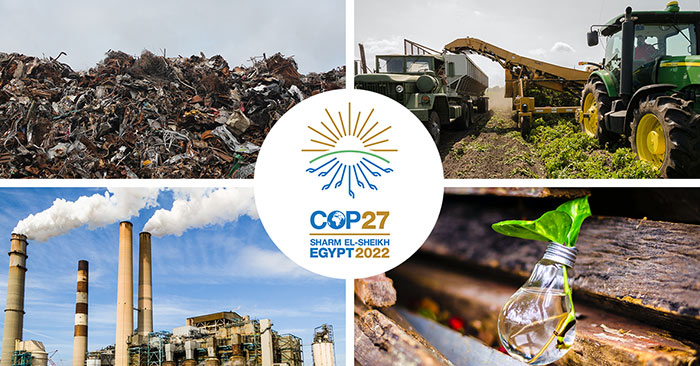
New Agreements, Old Debates Highlight COP27
The future of sustainable food was a major topic during the 27th Conference of Parties (COP27), held in Sharm El-Sheikh, Egypt in November. The 10-day event hosted by the United Nations Framework Convention on Climate Change (UNFCCC) gathered together 197 countries as well as nonprofit organizations, industry experts, climate focused investors and activists to discuss a blueprint for combating climate change.
As part of a larger examination about how nations can more efficiently achieve their commitments to reduce greenhouse gas (Ghg), advocates of regenerative agriculture, upcycling and plant-based foods encouraged delegates to aggressively support these initiatives to help sequester carbon, reduce animal agriculture land use and decrease waste in the food system.
Yet, debate raged over the timelines multinational food companies have set for reaching ESG goals and the scope of financial reparations that wealthier nations, like the U.S. and China, owe to developing countries who have been disproportionately impacted by climate change. According to the UN, small-scale farmers in developing countries currently produce one-third of the global food supply, yet they only receive 1.7% of climate finance.
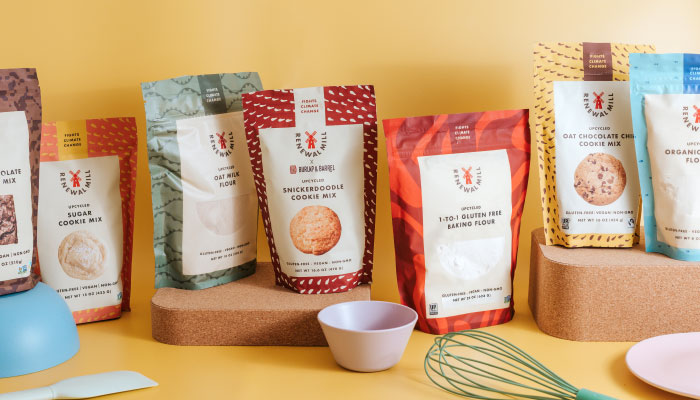
Upcycled Foods Taking Center Stage
Having experienced growth in recent years, upcycled food companies advanced the movement further into the mainstream in 2022. The U.S. Department of Agriculture’s Food Safety and Inspection Service (USDA FSIS) gave the Upcycled Food Association pre-market approval to put its certification standard on food labels, greatly increasing the visibility of the category to consumers.
More and more new brands have entered the category seeing consumer appeal for upcycled products increase. Icelandic-born, California-based food and beverage entrepreneur Smári Ásmundsson, founder of Smári Organics, announced in October the launch of his latest venture Bygg Foods, which will offer plant-based milk made from upcycled barley.
Although upcycled foods are helping to create a more sustainable food system and consumers are showing there is an economic incentive to use upcycled ingredients, the added costs of reprocessing food byproducts into new ingredients can still be fiscally unsustainable for smaller brands. This might be leading to a restructuring of upcycled food companies.
Drexel University professor Jonathan Deutsch has been studying upcycled foods as the founding director of the Drexel Food Lab and the VP of the Upcycled Food Foundation Board of Directors. He told NOSH that upcycled ingredients could be a “game-changer” to significantly reducing the amount of waste in our food system.
Seeing an opportunity to service larger CPG brands, some upcycled food makers are shifting their focus from finished products to ingredients. Early adopter Upcycled Foods, Inc. announced in October it was shifting its focus with the introduction of four upcycled ingredients – two of which are made with the company’s patented ReGrained SuperGrain+. Other companies have seen the opportunity to utilize cascara (coffee fruit), cacao syrup and brewer’s spent grain to create new sustainable, upcycled foods and beverages.
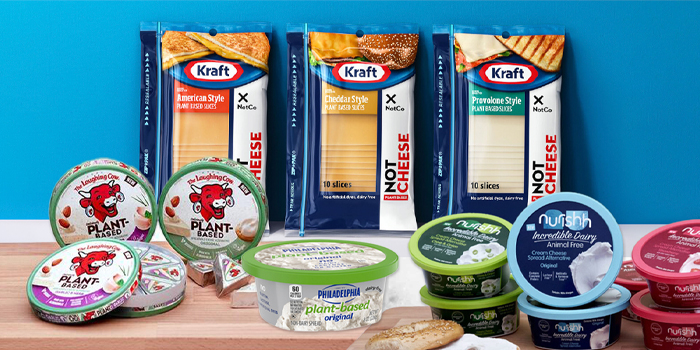
Sustainability Focus Breeds Innovation In Alt Dairy
Sustainability was also reflected in new CPG products released this year. From seasonal holiday treats to kid-oriented brands expanding into supplements, the hunger for healthier, more environmentally-friendly options is driving innovation.
A number of plant-based food companies showcased new products at both Expo West and Expo East this year. During Expo West, coconut tortilla maker Sana expanded its line to include paleo-diet friendly vegan frozen burritos and a smaller taco-sized variety. At September’s Expo East, Ithaca Hummus unveiled new travel squeeze pouches while organic plant-based creamery Forager Project showcased its own new pouches full of cashew milk yogurt. Mexican-American brand Siete used the food show to unveil its pivot from hot sauces into a line of new “Botana” sauce bases.
Sustainability continues to be a key driver for SunOpta, the country’s largest plant-based dairy manufacturer. The company’s new Midlothian, Texas production facility, scheduled to open by the end of this year, will complete a diamond-shaped distribution network between its current manufacturing plants in California, Minnesota and Pennsylvania that it claims will reduce 15 million freight miles annually, and 59 million less pounds of carbon emissions.
The company is also diversifying where and from whom it sources raw ingredients, looking to hedge against the more frequent fluctuations of the commodity markets.
“At the end of the day, (diversification) is the only lever that you have to pull when you’re talking about things like how do you manage around increasingly frequent weather events,” he said.
While plant-based milk is still growing, several players are already looking ahead to “animal-free” milk, most notably Perfect Day. After announcing the launch of Bored Cow – an animal-free dairy milk created in collaboration with food-tech firm Tomorrow Farms, available in Chocolate, Vanilla and Strawberry flavors – Perfect Day partnered with Nestlé in October to develop the recently unveiled “milk-like beverage” product, Cowabunga. The company also aligned with Kansas-based startup Strive Nutrition on FREEMILK Whole, an animal-free, lactose-free milk.
It is not the only major food company exploring the opportunities that food technology companies can provide to make alternatives to common food products. Laughing Cow cheesemaker, Bel Group, announced a partnership with precision fermentation food tech company Standing Ovation to make animal-free cheeses. Kraft also got into the alt cheese category by partnering with food tech company NotCo. to make dairy-free, Not Cheese Kraft Singles. Innovators in the category like Ripe and Miyoko’s Creamery have also been working to expand their offerings to reach consumers of high-end, cave-aged cheese with vegan varieties.

